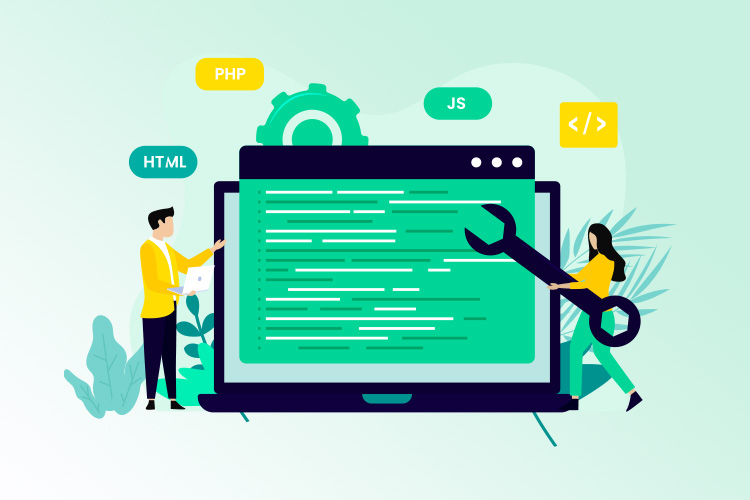Table of Contents
A recent Statista acknowledges the increasing role of smartphones too. According to the company’s data, more than half (58%) of smartphone users utilize their mobile devices to check prices and familiarize with existing offers. 66% of those users make a purchase via mobile phone at least once a week!
In such conditions, few will argue that mobile apps contribute to those figures. The hidden benefits of mobile apps for business have been cited by each and every industry leader as well as on our blog. On top of it, mobility itself is a great time saver and expense optimizer. Mobile apps are called to free up employees’ paid hours and re-distribute their time in a more efficient way.
Nevertheless, when it comes to the fact-checking and real-life examples, turns out that mobile apps market is filled with consumer-faced apps. Meanwhile, B2B applications and SaaS solutions are made custom behind closed doors away from the public.
Specifics of Custom Mobile Applications
Let’s start from a short custom application development definition in order to understand why most business-oriented mobile apps are made custom.
Custom app development is a process of software creation that is held according to customer’s preferences and based specifically on his inputs: problems, business goals, requirements.
Do not confuse custom software with commercial off-the-shelf products (COTS). COTS is a product that can be purchased or leased from a third-party vendor and installed for an internal use. COTS can be obtained and operated at a lower cost compared to in-house development. But every off-the-shelf solution was once developed as a custom one.
Such products have a set of ready-made functions called to solve problems in a specific field/industry. Those low-level corporate magic pills were in high demand during the 90s’ when in-house software development was an expensive service only big enterprises could afford.
Why your Business needs a mobile App?
In the meantime, a closer look at COTS products reveals a set of unpleasant drawbacks:
- Expensive component-integration works – A vendor of COTS software acts as monopolists and usually asks high price for additional integrations (email autoresponder, SEO optimiser, integration with CRM system). Taking into account the specifics of your needs, those expenses can be as high as custom app development. You’ll pay them over time in addition to the monthly fee.
- Dependency on the vendor – Nowadays, those services are distributed using SaaS model. Meaning, if the vendor has any troubles, so does all his clients. The body can’t live without the brain.
- Security issues – A recent SANS Institute survey shows that only 14% of companies perform security assessments of the software they bring in-house. Please, include these expenses into your budget.
- Incompatibilities from future changes – Your company may evolve faster than software you’ve acquired. This problem is especially painful for businesses with ready-made inventory management systems.
Fortunately, offshore software development companies lowered the price tag for custom development, thus allowing companies to obtain tailor-made apps.
Do You Really Need a Custom Mobile Application Development Services?
Despite the fact that technologies evolve and prices for software development are falling, software development is not cheap. After all, it requires the participation of the most highly-paid knowledge workers on the market – software engineers.
That is why software development requires careful planning. It is partly handled by our team, but there are business plan and budget you’re responsible for.
More Benefits of the Custom Development
Think about what makes your product different from that of your competitor. What you come up with are the most precious of the benefits that go along with custom software development.
Out of 100 similar apps the user will choose the one that sticks out. Your software product should definitely stand out of the crowd in order to attract attention and gain traction. Otherwise, what’s in it for a user? To be unique, original, and one of a kind is the best way to guarantee future success of your project.
Users pay for the experience. Even if your proposition is the same as that of your competitors, wrapping it up differently or using a different design can be incredibly valuable as it helps your users to see and feels the difference between what you offer and what your competitors has to offer.
When you go with custom solution, you choose to integrate features that will become reasons to choose you over the competitors. Give your potential users as much such reasons as you can. Otherwise, you will drown in the competitive pool of other companies that provide the same services or sell the same products and do it with a basic template.
Buying and using are the experiences. Free market economy and capitalism are all based on variety. Customers like the choice and feel pleased when a company goes an extra mile to deliver something memorable. Be like that and do whatever you can, emphasizing as much as possible just how is your product different from other products and/or services.
Easier to Scale, Update, Enhance, and Improve
How do you improve or change if something that is ready and done? You don’t. And if you do, it’s going to cost you and you will be squared by the restrictions. In ready-made CMS systems adding new features means incorporating plugins. Plugins are widely known to slow the whole system down and they cost extra.
On the contrary, if you make a custom web app or mobile app, the possibility for further improvements is considered in advance. Therefore, you can scale your product and add extra features later. And you will, since it is unimaginable for software products to survive without constant updates done on a regular basis. Just see how Booking, Google, Facebook, AirBnB changed over time. You may not noticed it but they we all updated annually. To notice it compare 2010 versions with 2020 versions.
What’s the Point if You Need a Team Anyway?
Do you think that choosing ready-made CMS systems like Joomla, WordPress, Wix or Magento will eradicate the need of developers altogether? Think again. Why is there is a constant demand and flow of magento developers and wordpress developers? Because business owners are not able to deal with the requirements of this software. Moreover, custom software is easier to handle as it can be adjusted to your unique specifications. These ready-made solutions market themselves as “all-in-one and easy-to-use” products of universal usability. That is hardly so. It worked in the past but with the rising competition the situation is no longer the same as it has once been.
These developers who are skilled in managing ready-made CMS systems cost just as much as your usual dedicated team. This implies 2 outcomes: 1) their work is difficult 2) you can cut the middleman (third-party provider) and make them work on YOUR product, something YOU will OWN and not just rent.
So now, please, answer me the question: what’s the point in buying a so-called “ready-made” solution if maintaining and updating it will still require you to hire a dedicated team? Now you get it, right?
You Can Do More
And you should do more. When using a ready-made CMS like Wix, Bubble, Framer or Joomla you are restrained and your options are limited to what the third-party provider allows you to do. Need that one extra features? In the best case scenario it will cost you. It will cost you to integrate it. It will cost your programmers to implement it. In the words case scenario, it won’t be possible. For example, some kind of animation that pops up when your client puts a product in the cart or animated and followed by sound field input. And these are the little details that help you to look different.
When developing a custom web app or mobile app, your options are unlimited. You can do whatever you’d like to do. Literally. The more sophisticated (but not complex) your customer journey is, the more likely you are to succeed. And to act smart you should consider and be able to implement all kinds of innovative features and cunning technique. Can you imagine successful products like Netflix, Uber or DoorDash to depend on some third-party integrations? Do not give you freedom to move away and trade it for a dependency on some middleman.
Factors one should take into account deciding whether to go custom or off-the-shelf way:
- Budget – A typical commercial software project starts from $45 000. Do you able to sustain such expenses and stay in the black?
- Schedule – If you’re playing against the market, or you have clients who can’t wait too long – think about a package solution first. Even a simple custom dev project takes 1-2 month to complete. Notify about your schedule in advance.
- Maintenance – Determine whether you’ll need further enhancements, updates, add-ons and a dedicated team to deliver them.
- Company Size – If you’re aiming at the global market, you definitely need a custom software to tweak it in accordance with specifics of different countries.
Custom Mobile Apps Benefits for Business
Efficiency
Let’s take reports as an example. Your employees make reports and you’re probably making some sort of boring reports too. There is nothing wrong with reports except that they take away time of your employees. On average, reports kill about 7.5 hours per week.
Surely, you want to automate those time killers and get back 4 days out of each monthly payroll. Unfortunately, reports are just like fingerprints – they are unique and every company has its own reporting format. That’s why truly automated reports come only with custom solutions.
High Scalability
Scaling a company may be difficult. It even harder to sustain grows in case if you’ve developed software solution not for yourself but for sale. Your clients may want to be sure that your support team can go beyond simple politeness and solve the problems. In order to resolve clients’ requests you’ll need a dedicated maintenance team that knows all ins and outs.
Client Data Acquisition
Custom software does not limit you with a predefined number of fields to fill in. You can expand database with any type of information you want to acquire from users. Apart from being a discreet way of collecting information, it also saves the time of clients and employees, as they don’t have to physically attach the documents.
Change the Course
Being the captain of your own development team you can always change the course and redesign your app according to the current market demand. Plus. there is no rush. You can gradually enhance your product with functions and test different tactics. Consider our MVP blog post, it may be a good point to start development from.
Improved Client Relationship
There are many ways to improve relationships with customers by using technology. Most of them are built on top of tailored-made offers and dedicated supports. Mobile apps allow companies to sustain the automation level needed to deliver a required level of personalization.
In particular, such apps come in handy when you need to construct unique customer journeys that will take into account clients’ responses. Or when you need to process custom orders or “bundle” offers with multiple levels of choices.
FAQ
Bottom Line
On top of it all, there are many examples when a company resells its software or any other competitive advantage to other market players and thereby pays off its investment in the development. The most prominent one is Samsung Group that sells its OLED screens for Apple’s iPhone X.
Definitely, the tailor-made app always costs more than off-the-shelf one. Is it worth it? Or you can get along with a paid one? It’s up to you to decide. What we can say for sure, though, you’ll get what you pay for!



